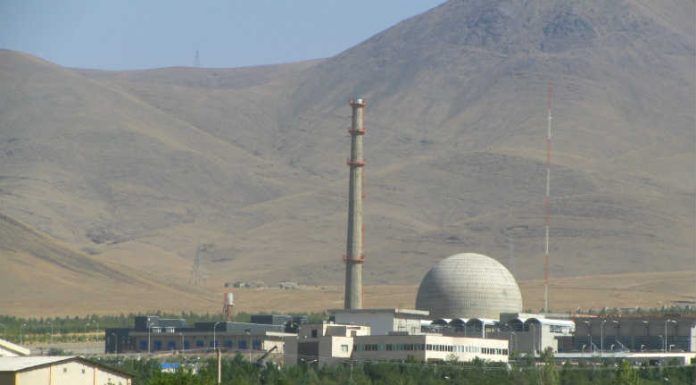In a video message to the World Economic Forum in Davos on January 22, U.S. Secretary of State Mike Pompeo praised President Donald Trump’s administration for confronting the Islamic Republic of Iran’s harmful activities in the region.
Mr. Pompeo said: “We face many new threats. Some of them not so new. They range from North Korea’s nuclear program to Iran’s foreign adventurism. We’ve also assembled a global coalition of nations to confront Iran and support the aspiration of Iranian people.”
Secretary Pompeo’s Davos address echoed his earlier remarks in a speech at the American University in Cairo on January 10, in which he sharply criticized former U.S. President Barack Obama for “staying silent as the people of Iran rose against the mullahs in Tehran in the Green Revolution. We learned that when America retreats, chaos often follows. When we neglect our friends, resentment builds. When we partner with enemies, they advance. The U.S. would use diplomacy and work with our partners to expel every last Iranian boot from Syria.”
.@SecPompeo to @wef: We face many new threats from #NorthKorea to #Iran to #China to radical Islam. In all these areas we are making progress. None of this progress could have happened without coalitions in which America plays a central role. #wef19 pic.twitter.com/nsDqpYDq8l
— Department of State (@StateDept) January 22, 2019
The leaders of the Islamic Republic have taken no constructive and decisive steps to ease the increasing political and economic pressure on the country.
“We plan to transport 30 tons of yellowcake from Ardakan [A uranium mine in the central province of Yazd] to Isfahan [Uranium Conversion Facility (UCF)] by the end of January,” the head of Iran’s Atomic Energy Organization Ali Akbar Salehi said recently. “We will restart our enrichment program and build new power stations and centrifuges.”
Mr. Salahi’s defiant tone is part of a confrontational policy that Tehran has adopted towards the West after the U.S. withdrawal of the 2015 Joint Comprehensive Plan of Action (JCPOA), better known as the Iran nuclear deal, and the re-imposition of economic sanctions on the country.
Meanwhile, Iran has continued its ballistic missile program despite protests by the international community. The U.S. and Israeli governments believe that the primary purpose of Iran’s space program is to test its long-range ballistic technology. Iran’s Ministry of Information and Communications Technology announced on January 15 that an attempt to launch the “Payam” satellite into orbit had failed. The ministry has maintained that Payam was a communication and imaging satellite. A week later, Defense Minister Brigadier-General Ali Hatami announced that Iran “will launch a second satellite into space on the anniversary of the Islamic Revolution sometimes in February.”
In a commentary titled “Washington’s Complicated Plan for Forcing Iran Out of the JCPOA,” published in its January 23 issue, the moderate daily Mardomsalari wrote: “It would seem that [U.S. National Security Adviser John] Bolton knows that Iran has no military nuclear program. However, he is doing his utmost to convince everyone that Iran has nuclear ambitions. Mr. Bolton has ignored reports by U.S. intelligence agencies for the past decade that have consistently said Iran stopped its nuclear program long ago. He is using the past to poison the minds of his audience against the future.”
On January 15, Bolton said: “Iran’s secret nuclear archive provides substantial evidence that Iran’s declarations to IAEA [the International Atomic Energy Agency] are incomplete and deliberately false. The President was right to end the horrible Iran deal. Pressure on Iran to abandon nuclear ambitions will increase.”
Report: Iran's secret nuclear archive "provides substantial evidence that Iran's declarations to IAEA are incomplete & deliberately false." The President was right to end horrible Iran deal. Pressure on Iran to abandon nuclear ambitions will increase. https://t.co/ZpqCN51dQh
— John Bolton (@AmbJohnBolton) January 14, 2019
Meanwhile, there is intense infighting among the regime’s elite over the fate of the JCPOA. On January 17, Ahmad Jannati, the chairman of the Assembly of Experts, said: “Some people think we can rely on the Europeans after the U.S. pulled out of the JCPOA. The Europeans are dragging their feet. They won’t do anything for us.”
Translated from Persian by Fardine Hamidi


